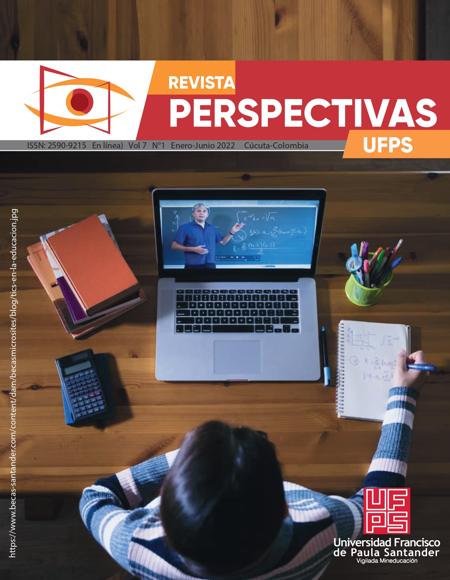Las pruebas de fluidez lectora como estrategia para mejorar la comprensión de lectura en estudiantes de grado cuarto de la Institución Educativa el Bosque
Las pruebas de fluidez lectora como estrategia para mejorar la comprensión de lectura en estudiantes de grado cuarto de la Institución Educativa el Bosque
Main Article Content
Reading comprehension from the beginning of the human being is an acquired and learned skill that encourages day after day to improve the use of the language and to strengthen comprehension for an improvement of cognitive results at a general level.
This research proposes to determine the effectiveness of reading fluency tests in the results of comprehension in fourth-grade students in the morning session of the “Institución Educativa el Bosque” of the municipality of Soacha, bearing in mind that, given the institutional pedagogical practices, these are children who are in the constant exercise of analyzing to develop argumentative and interpretative tasks in search of constant solutions.
As a proposal to develop comprehension and analyze the results obtained, a didactic unit was designed where reading fluency tests were adapted, aimed at working on the levels of textual comprehension; initially applying a pretest that determines the initial comprehension levels of the participants, followed by the application of the didactic unit, applied as a stimulus to the experimental group, to finally and using a post-test, determine the effectiveness of the fluency tests, in the improvement of comprehension; comparing the initial results with the final ones.
The work was inscribed in a quantitative methodological approach employing a process where variables and hypotheses were determined and a plan of action was determined with the student, having as an advantage that they are in the same age, schooling, and similar intellectual conditions for being in the same context; it was analyzed that all recorded repeated reading showed more comprehension and fluency in them, having features and time spent, this response allowed to determine the performance achieved by each child in each of their levels of understanding, which showed that the more fluency tests are applied the better their performance in the levels of understanding and recognition and coding of words allow more accuracy, intonation speed, which help to improve the automaticity of reading, facilitating the process of giving meaning to the information of texts.
Downloads
Article Details
Agencia de Calidad de la Educación. (s.f.). Evaluación de la habilidad de decodificación y fluidez. Recuperado de http://archivos.agenciaeducacion.cl/ACE_Rubrica_Habilidad_Decodificacion_y_fluidez.pdf
Alcalá, G. (2012). Aplicación de un programa de habilidades metacognitivas para mejorar la comprensión lectora en niños de 4to grado de primaria del colegio Parroquial Santísima Cruz de Chulucanas. Universidad de Pirua. Recuperado de https://pirhua.udep.edu.pe/bitstream/handle/11042/1420/MAE_EDUC_089.pdf
Alva, C. Tovar, D. Albornoz, C. Yarlequé, L. Rodríguez, E. (2010). Aplicación de un programa de estrategias de aprendizaje para incrementar el nivel de comprensión Lectora, en alumnos del primer ciclo de una Universidad Particular Peruana. Revista de Investigación de la Universidad Norbert Wiener. Recuperado de https://intranet.uwiener.edu.pe/univwiener/portales/centroinvestigacion/documentacion/revista_1/002_ALVA_ET_ALTRII_REVISTA_1_UNW.pdf
Cáceres, A. Donoso, P. Guzmán, J. (2012). Comprensión Lectora. “Significados que le atribuyen las/los docentes al proceso de comprensión lectora en NB2”. Santiago de Chile. Recuperado de http://repositorio.uchile.cl/bitstream/handle/2250/106365/Comprension-lectora.pdf?sequence=3&isAllowed=y Cerezo, S. (1991). Diccionario enciclopédico de educación especial. Madrid. Santillana.
Ferrada, N. (2015). Programa de Fluidez Lectora con Escolares Disléxicos chilenos. Universidad de Santiago de Compostela. Recuperado de https://minerva.usc.es/xmlui/handle/10347/13984
Ferrada, N. Outón, P (2017). Estrategias para mejorar la fluidez lectora en estudiantes de educación primaria: una revisión. Investigación en la Escuela. Revista internacional de investigación e innovación educativa. Recuperado de https://idus.us.es/bitstream/handle/11441/71983/R92-4.pdf?sequence=1&isAllowed=y
Fumagalli, J. C, Barreyro, J. P., & Jaichenco, V. I. (2017). Fluidez lectora en niños: cuáles son las habilidades subyacentes. Ocnos, 16 (1), 50-61. Recuperado de doi: http://dx.doi.org/10.18239/ocnos_2017.16.1.1332. DOI: https://doi.org/10.18239/ocnos_2017.16.1.1332
Fumagalli, J. Barreiro, J y Jaichenco, V. (2017). Niveles de fluidez lectora y comprensión de textos. Traslaciones. Revista Latinoamericana de Lectura y Escritura, 4 (8). pp. 163-186. Recuperado de https://dialnet.unirioja.es/servlet/articulo?codigo=6895480.
Hernández Sampieri, R., Fernández, C. y Baptista, P. (2014) Metodología de la investigación (6a ed.). México, D.F., México: McGraw-Hill Interamericana. Recuperado de http://observatorio.epacartagena.gov.co/wp-content/uploads/2017/08/metodologia-de-la-investigacion-sexta-edicion.compressed.pdf
Ministerio de Educación Nacional. (2018). Reporte de la excelencia 2018. Básica Primaria. Institución Educativa el Bosque. Recuperado de: https://diae.mineducacion.gov.co/siempre_diae/documentos/2018/125754002066.pdf
Ministerio de Educación Nacional. Lineamientos curriculares de lengua castellana. (1998). Recuperado el 23 de febrero de 2020 de https://www.mineducacion.gov.co/1621/articles-89869_archivo_pdf8.pdf.
Ministerio de Educación Nacional. Estándares básicos de competencias del lenguaje (2003). Recuperado el 23 de febrero de 2020 de http://eduteka.icesi.edu.co/pdfdir/MENEstandaresLenguaje2003.pdf.
Rivera, M. (2015). Metodología para el desarrollo de la comprensión lectora en el proceso enseñanza-aprendizaje. Revista científicas Dominio de las Ciencias. Vol. 1, núm. 1, 2015, pp. 47-61. file:///C:/Users/sandy/Downloads/Dialnet-MetodologiaParaElDesarrolloDeLaComprensionLectoraE-5761664.pdf
Valdebenito, V, (2012). Desarrollo de la Competencia Lectora, Comprensión y Fluidez, a través de un programa de tutoría entre iguales, como metodología para la inclusión. Universidad Autónoma de Barcelona. Recuperado de https://www.tdx.cat/bitstream/handle/10803/96309/vhvz1de1.pdf







